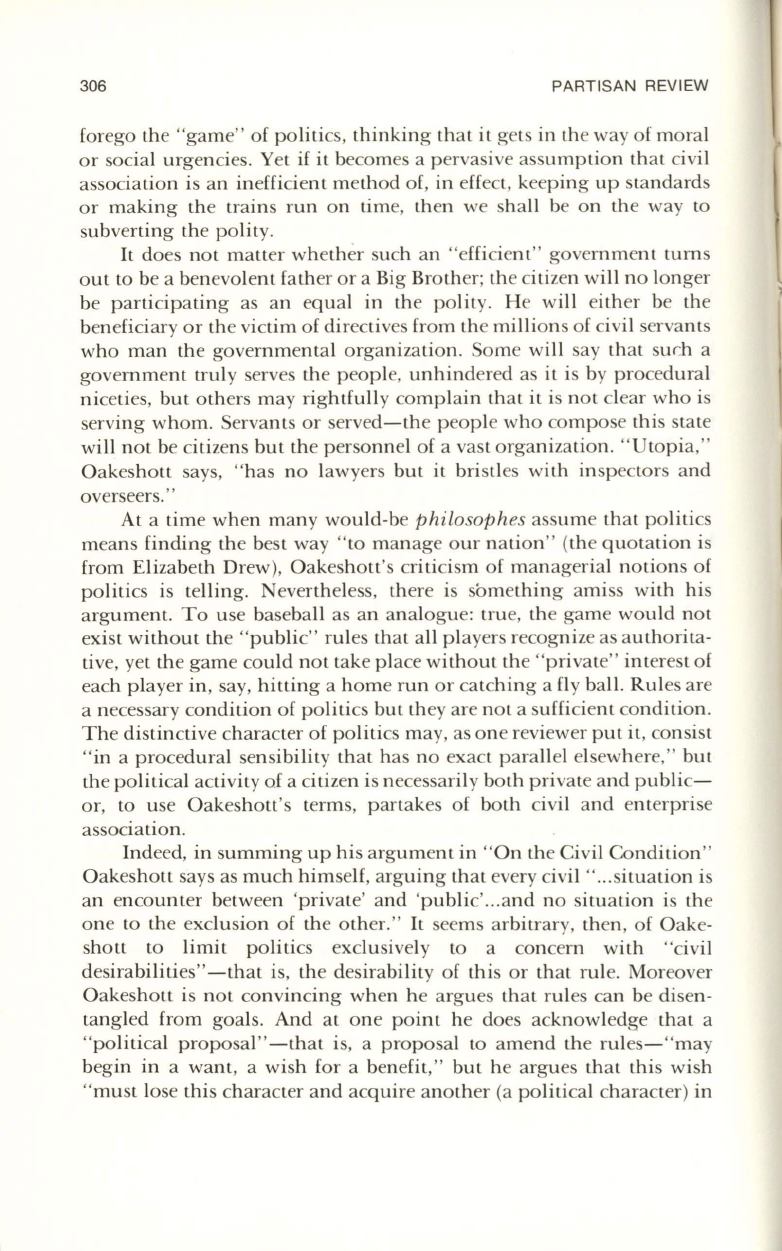
306
PARTISAN REVIEW
forego the "game" of politics, thinking that it gets in the way of moral
or social urgencies. Yet if it becomes a pervasive assumption that civil
association is an inefficient method of, in effect, keeping up standards
or making the trains run on time, then we shall be on the way to
subverting the polity.
It does not matter whether such an "efficient" government turns
out to be a benevolent father or a Big Brother; the citizen will no longer
be participating as an equal in the polity. He will either be the
beneficiary or the victim of directives from the millions of civil servants
who man the governmenta l organization . Some will say that sur.h a
government truly serves the people, unhindered as it is by procedural
niceties, but others may rightfully complain that it is not clear who is
serving whom. Servants or served-the people who compose this state
will not be citizens but the personnel of a vast organization. "Utopia,"
Oakeshott says, "has no lawyers but it bristles with inspectors and
overseers.' ,
At a time when many would-be
philosophes
assume that politics
means finding the best way "to manage our nation" (the quotation is
from Elizabeth Drew), Oakeshott's criticism of managerial notions of
politics is telling. Nevertheless, there is something amiss with his
argument. To use baseball as an analogue: true, the game would not
exist without the "public" rules that all players recognize as authorita–
tive, yet the game could not take place without the "private" interest of
each player in, say, hitting a home run or catching a fly ball. Rules are
a necessary condition of politics but they are not a sufficient condition.
The distinctive character of politics may, as one reviewer put it, consist
"in a procedural sensibility that has no exact parallel elsewhere," but
the political activity of a citizen is necessarily both private and public–
or, to use Oakeshott's terms, partakes of both civi l and enterprise
association.
Indeed, in summing up his argument in "On the Civil Condition"
Oakeshott says as much himself, arguing that every civil " ... situation is
an encounter between 'private' and 'public' .. .and no situation is the
one to the exclusion of the other." It seems arbitrary, then, of Oake–
shott to limit politics exclusively to a concern with "civil
desirabilities" -that is, the desirability of this or that rule. Moreover
Oakeshott is not convincing when he argues that rules can be disen–
tangled from goals. And at one point he does acknowledge that a
"political proposal"-that is, a proposal to amend the rules- "may
begin in a want, a wish for a benefit," but he argues that this wish
"must lose this character and acquire another (a political character) in


